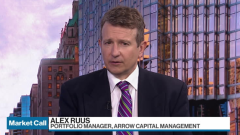May 14, 2024
Japan’s Stock Boom Is Reviving a Yen-Hedged ETF After 45% Rally
, Bloomberg News

(Bloomberg) -- A Japan-focused stock ETF that strips out moves in the yen is undergoing a big revival, raking in flows all of a sudden as it hits record highs.
The WisdomTree Japan Hedged Equity Fund (ticker DXJ) hit an all-time high on May 6, having climbed roughly 45% over the past 12 months thanks to rallies in its holdings including Toyota Motor Corp and Mitsubishi UFC Financial Group.
The fund invests in Japanese stocks while hedging against weakness in the yen, appealing to investors who are worried their gains will be wiped out if the dollar strengthens due to relatively higher interest rates in the US.
The yen is the worst performers against the dollar this year among major currencies, falling about 10%. Late last month it breached 160 per dollar, a level last seen in 1990, as sticky inflation bolsters bets on higher-for-longer US rates.
Read more: Bond Traders Get Unwelcome Inflation Hint Ahead of April Reports
After years of modest to negative flows, DXJ is now poised for its best year of inflows since 2015. On Friday, investors poured in nearly $120 million to DXJ, the biggest one-day inflow since mid-February.
“It has relatively stronger earnings revisions, high growth estimates, strong price momentum, and it’s cheap,” said John Davi, founder of Astoria Portfolio Advisors, who has a position in DXJ in his multi-asset risk model and tactical models.
The 18-year old fund invests in Japanese companies that export to the United States, which are attractive as long as the US economy continues to churn, said Davi.
Meanwhile, historic weakness in the yen has helped DXJ outperform its unhedged peers. While DXJ doesn’t have an exact counterpart, the iShares Currency Hedged MSCI Japan ETF (HEWJ), which holds similar Japanese stocks, has beaten its unhedged peer by over 23 percentage points over the last year.
Davi emphasized that currency fluctuations are hard to time, so he allocates half of his Japan position to DXJ, and the other half to the unhedged EWJ. The move can protect against a reversal in the yen’s recent weakening. But the value of the currency hedge is evident—DXJ has outperformed EWJ by about 35 percentage points over the last 12 months.
Despite the fund hitting a record high, it’s unclear whether the flows will come back as strongly as they did during the last decade. Many ETF investors poorly timed their trading in currency-hedged ETFS during previous periods of dollar strength. And while DXJ’s $1.3 billion inflow for 2024 is the best in nearly a decade, that pales in comparison to the $3.1 billion and $9.8 billion it hauled in 2015 and 2013, respectively.
“Japan is arguably the strongest equity market globally, and allocations are up via ETF flows. But I’m surprised it hasn’t been as much a craze like it was a decade ago. Investors may be just too burned by international equities over the years,” said Todd Sohn, ETF strategist at Strategas.
©2024 Bloomberg L.P.





